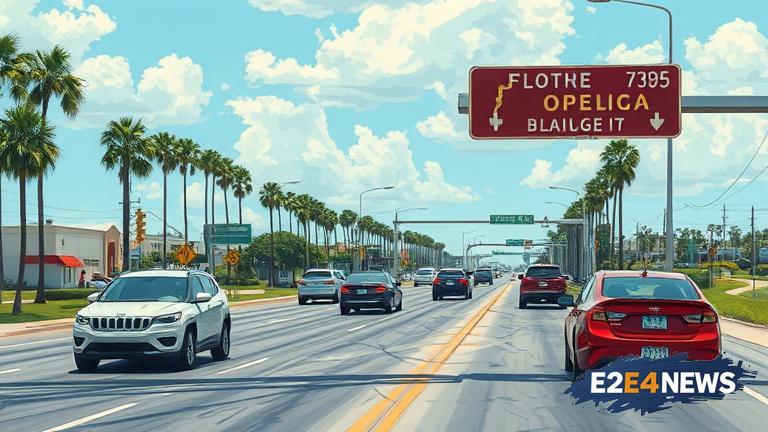Florida’s roads have become a haven for super speeders, with the state’s jail populations experiencing a significant surge in recent times. The phenomenon of super speeding, which refers to drivers exceeding speed limits by 30 miles per hour or more, has become a major concern for law enforcement agencies across the state. According to reports, the number of super speeders being arrested and jailed has increased dramatically, with many drivers being caught driving at speeds of over 100 miles per hour. The Florida Highway Patrol has been cracking down on super speeders, with officers using advanced technology such as radar guns and license plate readers to catch offenders. Despite the efforts of law enforcement, super speeding remains a persistent problem in Florida, with many drivers seemingly oblivious to the risks and consequences of their actions. The state’s highways have become a dangerous place, with super speeders posing a significant threat to the safety of other road users. The problem is not limited to any particular region, with super speeders being found on highways and roads throughout the state. The causes of super speeding are complex and multifaceted, with factors such as aggressive driving, reckless behavior, and a lack of respect for the law all contributing to the problem. In addition, the rise of social media has created a culture of competition among some drivers, with individuals seeking to outdo each other by driving at increasingly high speeds. The consequences of super speeding are severe, with offenders facing hefty fines, license suspensions, and even jail time. Furthermore, super speeding can have devastating consequences for other road users, with the risk of accidents and fatalities increasing exponentially at high speeds. The Florida Department of Highway Safety and Motor Vehicles has launched a number of initiatives aimed at reducing the incidence of super speeding, including public awareness campaigns and targeted enforcement operations. However, more needs to be done to address the root causes of the problem and to prevent super speeding from becoming a normalized behavior on Florida’s roads. The state’s lawmakers have also been called upon to take action, with some advocating for tougher penalties and stricter laws to deter super speeders. As the problem of super speeding continues to plague Florida’s roads, it is clear that a comprehensive and multifaceted approach is needed to address the issue. This must involve a combination of education, enforcement, and community engagement, as well as a commitment to changing the cultural attitudes that contribute to super speeding. By working together, it is possible to reduce the incidence of super speeding and to make Florida’s roads safer for all users. The issue of super speeding is not unique to Florida, with other states also experiencing problems with reckless driving. However, the state’s unique combination of high-speed highways and aggressive driving culture make it a particularly challenging place to address the issue. As such, it is essential that Florida’s lawmakers, law enforcement agencies, and community leaders work together to develop effective solutions to the problem. Ultimately, the goal must be to create a culture of safe and responsible driving in Florida, where super speeding is seen as a unacceptable and reckless behavior. By achieving this goal, it is possible to reduce the number of accidents and fatalities on the state’s roads, and to make Florida a safer and more pleasant place to drive. The fight against super speeding is an ongoing one, and it will require sustained effort and commitment from all stakeholders to achieve lasting change. However, by working together and using a combination of education, enforcement, and community engagement, it is possible to make a positive impact and to reduce the incidence of super speeding on Florida’s roads.
